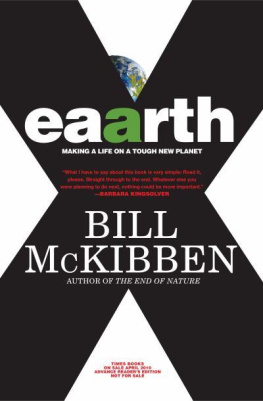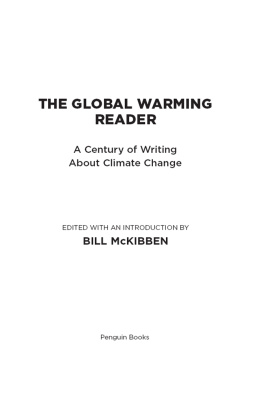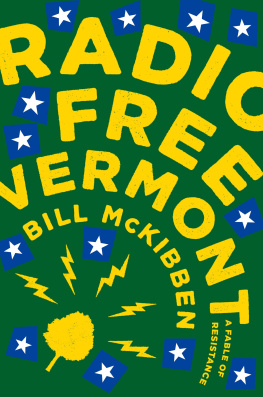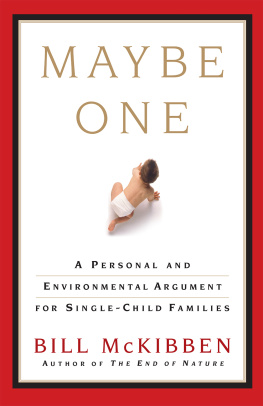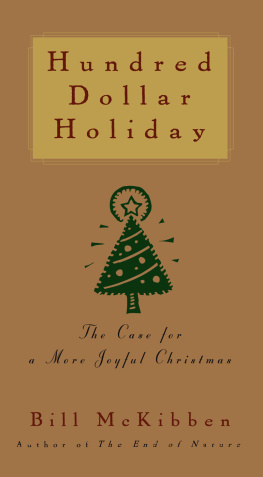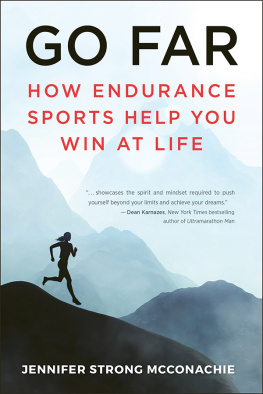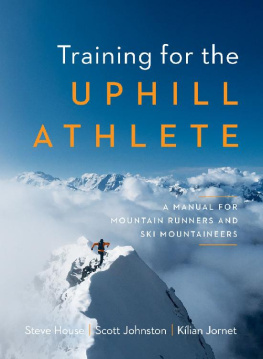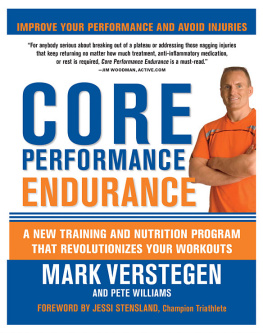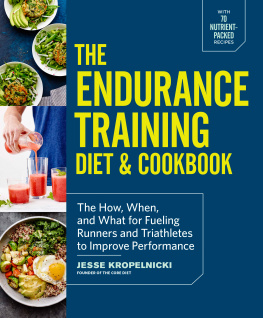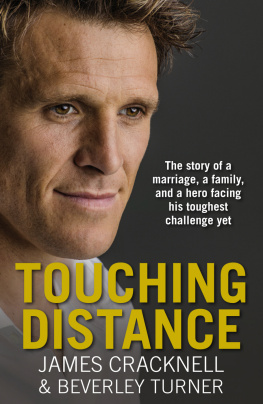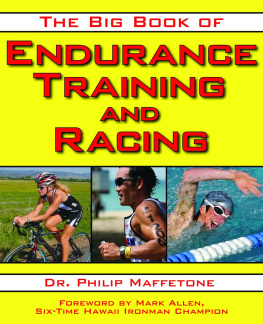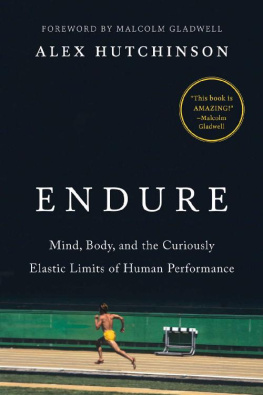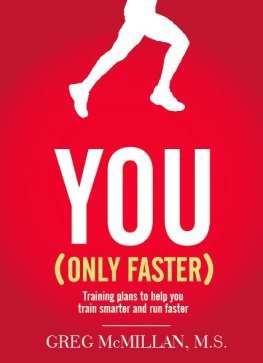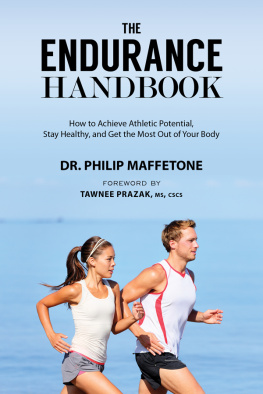

For Gordon McKibben
I NTRODUCTION
I n the decade since Long Distance first came out, the question that other masters athletes have asked me most often is: You still training?
And the answer is yes, but. Not like I did in this bookthat was a one-year extravaganza, the kind of self-indulgence and solipsism that could be justified by someone in training for an Olympic medal, but not someone trying to come in third in his age group at the local race. Anyway, it wore me right out. By the next year Id cut my training time in halfto about 300 or 350 hours annuallyand thats about where its stayed ever since. Its still enough to be a major part of my life, but not enough to dominate it, which is good, because Ive had other things to do. More important things: watch my daughter grow into a young woman, write a few more books, help organize the largest grassroots climate campaign in the planets history.
Oddly, cutting back on training didnt really slow me down. Perhaps Id taken the year described in this book to really jump-start my body to some new, fit stagesince then, Ive been more or less able to maintain that new form. Im ten years older, but I weigh about the same, and I finish 25 kilometers at about the same pace. And I still love to ski with the same fervorstill lie awake on hot summer nights imagining what the next winter will be like. Ill bike, and Ill run, and Ill paddle, and Ill hikebut its those frozen months, when friction disappears and a certain kind of grace descends even on the ungainly, that I live for.
Ive also had the great good fortune to learn a lot more about racing of all kinds. Ten years ago we moved to Middlebury, Vermont, and I volunteered to be the faculty advisor to the colleges Nordic ski team, one of the very best in the country even though all the competition comes from major universities. The teams coaches, Andrew Gardner and Patty Ross, have taught me a whole new depth of appreciation for the sportand its been sheer pleasure to get to know dozens of young skiers. This year two of the finest, both as athletes and young men, were on the U.S. Olympic team: it was intriguing to watch Garrott Kuzzy and Simi Hamilton mature into superior athletes over the course of a few seasons.
And a joy as well to see some of the others mentioned in this book come of age. Tim Burke and Lowell Bailey put in brief appearances as teenagers waxing my skis in a Quebec parking lot before my first real race; now theyre both Olympic biathletes, and Tim, who is one of the best in the world, is a well-known athletic hero in Europe where they take the sport with NASCAR seriousness.
Some days, usually when the work of trying to fix global warming is going even worse than usual, I find myself thinking that Id like another yearlong vacation, another chance to live in my body instead of my mind for most of the hours of the day. The sage of a 50-year-old athlete would be different than a 40-year-oldfighting off decay becomes the dominant metaphor at some point. But Im deeply grateful to have had the chance once, because ever since its let me watch real athletes and understand their achievements in some deeper way. And its let me watch my fellow wannabes with great affection. We may not be winning, but were winning.
1
I came seeking sweat and found only enlightenment.
It was the first day of January, and I was checking in to the Kripalu Center, a holistic retreat in the Berkshire Hills of Massachusetts. Id come to meet Rob Sleamaker, who had agreed to help turn me into an athleteto coach me for a year until I was as tough a cross-country ski racer as my genes would allow.
Wandering the halls in search of Rob, who had been hired by Kripalu to teach a weekend course on yoga and skiing, I came across the dining hall, where they were serving butternut squash for supper. Theyve put orange juice on the squash, said the woman next to me in line, in a tone that implied orange juice was a tangy form of arsenic. I took my tray to the nearest empty chair, which turned out to be next to a man describing craniosacral massage. You know, he told me in a confidential tone, if youre generating mucus in one membrane, youre generating it everywhere.
For some reason I ate more quickly than usual and then checked the bulletin board to see if Rob had left a note, but found only posters for upcoming events: Healing Ourselves/Healing the Planet with Grandmother Rainbow, The Weeklong Never-Ending Chant, Living in the Higher Worlds Without Getting Altitude Sickness, Somatic Explorations of the Jaw. I wandered into a room where a man was orienting first-time visitors. He himself had moved here full-time, he explained, and changed his name to Domadaar. I want to thank you for coming to share your energies, Domadaar said. Dont worry about remembering what Im going to tell youwhats important for you will stick with you, and the rest will dissolve into air. I was beginning to develop a rash. I had come here to jump-start the process of jockification. Forget Grandmother Rainbow; I was looking for Arnold Schwarzenegger. Or so I thought.
Finally I found the room where the cross-country skiing group had gathered. They were sitting cross-legged, listening as a man talked. It must be Rob, whom Id spoken with on the phone but whom I had never laid eyes on. Id read his book Serious Training for Endurance Athletes, which was filled with lots of graphs of things like Ventilation and Lactic Acid Changes at the Anaerobic Threshold. The blurbs on the back came from people who, collectively, had won the Ironman triathlon twelve times. And yet as he spoke he sounded sort of like, well, Domadaar. Theres a lot of synergy between yoga and cross-country skiing, he was saying. You perform so much better when youre relaxed. He glowed with the same sanctified sheen of good health as the other people here.
Happily, though, he proved more than willing to get an unorganic beer in town that night. As we sat, he told me about his lifea boyhood spent playing every possible sport, a degree in exercise physiology from the University of Arizona, a stint working with the U.S. biathlon team. I started to see the threads of truth that ran through all the various coaching philosophies, he said. Most of the athletes I knew, their training programs made no sense. Everyone talked about how many miles theyd run, but no one talked about how hard theyd run them. As he warmed to the topic, he took his knife and started drawing a graph on his napkin. Heres the intensity of your exercise, he said, charting one axis. Right now, youd start to get overcome by lactic acid down here, going pretty easy. We want to get you going faster and farther before that buildup starts. Thats what racing isits the ability to endure the high production of lactate for a long time.
This is more like it, I thought. Enough about the spiritfinally were getting down to bodies, mine in particular. Finally were concentrating on what the next twelve months will bring. After a while youll get to know your body, Rob said. After a while its like getting up in the middle of the night and going to the bathroomyou know where to go. Youll get to the last two kilometers of the race and know that youre not going to bury yourself by going too hard.
But then Rob mentioned in passing that his dad was a preacher, and his granddad too, and just as suddenly the mood shifted. Hed left the church behind, he said, but not an abiding interest in the process of living. Maybe I rolled my eyes, because he began to speak more quietly and firmly. Look, life truly is a journey. One of the ways we become whole is to embrace the integration of mind, body, and spirit. If it happens simultaneously, so be it. But we have a whole lifetime. If there is any kind of higher power, I think what it wants is for us to learn as much as we can. You have a mind, you have a body, you have a spirit, and its important to learn in all three realms. If you want to use just your intellect for one long period, thats okay. But you were born whole, and you can get back to that. Day one of my new life, and already more than Id bargained for. I had a coach, but I had a guru too, and I was starting to wonder how much difference there was.
Next page

